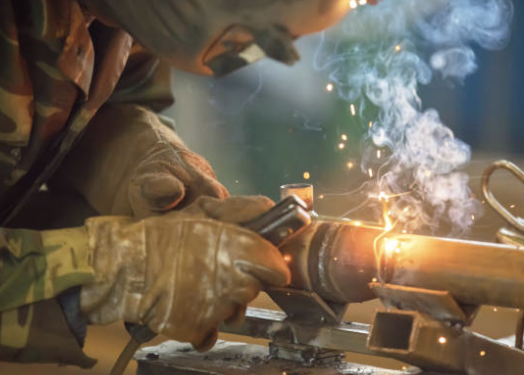
Posted on Thursday, February 22, 2024
The defense industry relies heavily on precision, durability, and advanced engineering in metal fabrication. From armored vehicles to specialized weaponry, metal fabrication plays a pivotal role in ensuring the safety, functionality, and longevity of military-grade equipment.
Metal fabrication in the military industry involves the process of designing, cutting, shaping, and assembling metal components to create high-strength and precision-engineered equipment used in defense. This includes armored vehicles, aircraft components, naval vessels, and weapon systems. Fabrication techniques include welding, machining, bending, and surface finishing to meet the stringent durability and performance requirements of military applications.
The production of armored vehicles requires a range of heavy-duty and precision machines, such as:
Military-grade metal fabrication often employs materials known for their strength, durability, and resistance to extreme conditions. Common materials include:
Metal fabrication improves weapon durability through:
Fabricating military equipment comes with unique challenges:
CNC machining ensures precision and consistency in fabricating critical components for military equipment, such as weapon mounts, vehicle frames, and aircraft parts.
Composite materials are engineered from two or more different materials to achieve superior strength, lightweight properties, and resistance to impact. They are essential for ballistic protection and aerospace applications.
Metal fabrication in naval applications includes constructing hulls, propellers, and weapon systems for ships and submarines. High-strength, corrosion-resistant materials like titanium and stainless steel are frequently used.
Testing includes stress analysis, impact resistance, corrosion testing, and ballistic testing to ensure that components meet military specifications and can endure harsh environments.
Future trends include the use of advanced automation, 3D metal printing for complex parts, and the integration of AI for design optimization and quality control.
Metal fabrication in the defense industry is a highly specialized field that demands precision, innovation, and adherence to strict quality standards. By addressing common questions and exploring the complexities of military-grade fabrication, we hope this guide serves as a comprehensive resource for those interested in this critical sector.
Have more questions? Feel free to reach out or leave a comment below!

Used Purlin Roll Forming Machines for Sale Worldwide
Posted on Sunday, January 25, 2026
Pre-Owned Roll Forming Machines for Purlin & Structural Steel Profiles

Used Roof Panel Roll Forming Machines for Sale Worldwide
Posted on Sunday, January 25, 2026
Pre-Owned Roll Forming Machines for Roofing Panel Production

Used Roll Forming Machines for Sale Worldwide
Posted on Tuesday, January 20, 2026
Pre-Owned Roll Forming Machines with Inspection, Verification & Global Support

Steel Coil Supply for Roll Forming Machines Worldwide
Posted on Tuesday, January 20, 2026
Reliable Steel Coil Supply for Roll Forming, Fabrication & Manufacturing Applications
Copyright 2026 © Machine Matcher.